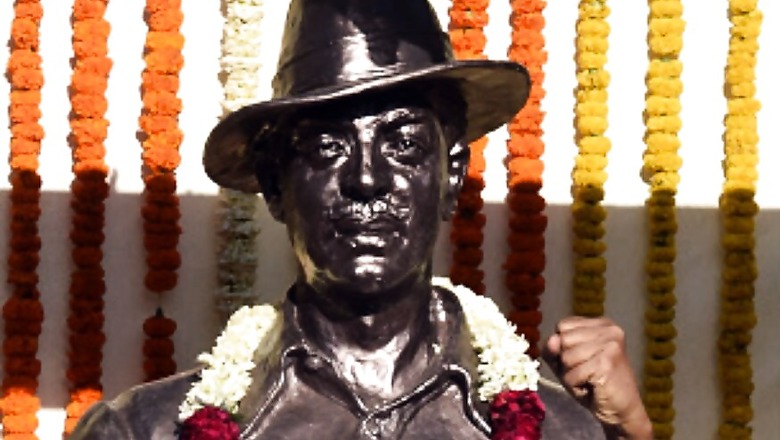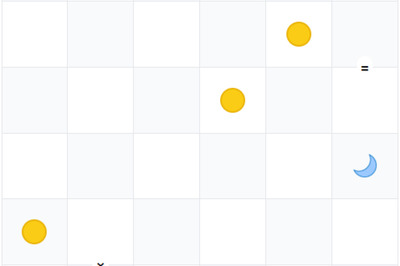
views
Bhagat Singh as an icon is ubiquitous – on the bumpers of cars, as wall graffiti, on Facebook profile pictures even as what he stood for, what he espoused, has mostly disappeared.
Singh’s life and times have to be understood in the context of the independence struggle in an undivided Punjab. While his legacy has sought to be appropriated by the Left and the Right in India, it is even more complicated across the border in Pakistan.
Ajoka theatre, a leading theatre group based out of Lahore, has played an active role in promoting Singh's legacy in Pakistan. Considering that Singh was born in Lyallpur, now known as Faisalabad, studied in Lahore and was executed in Lahore, it is a legacy to be proud of.
Ajoka’s play ‘Mera Rang de Basanti Chola’ is about the life and times of Bhagat Singh and the theatre group is currently touring India staging the play under the ‘Theatre for Peace’ project, that aims to promote peace between the two countries through the arts. Ajoka’s Madeeha Gauhar spoke to News18's Tushar Dhara.
Q: What is Bhagat Singh’s legacy in Pakistan?
A There’s not much of a legacy which has been recognized, because Pakistan has dropped most non-Muslim figures of the independence movement from its history. The narrative of independence has been one-sided rather than focus on the anti-colonial legacy. That is why we did this play in order to explore the facets of Bhagat Singh – he was executed in Lahore, he studied in Lahore – but also to try and correct the distortion of history. We have also tried to do something similar for other historical figures like Dara Shikoh, Bulleh Shah, and Manto. It’s part of a series of plays that explores the history of figures who have been sidelined from the official narrative of Pakistan.
Q: How are Bhagat Singh, Sukhdev and Rajguru remembered in Pakistan?
A: Let me tell you an incident: My son played the part of Bhagat Singh and he was 22 years old at that time. He studied at the National College of Arts in Lahore, which is the premier arts institution in Pakistan. My son was doing his graduation in film making. As part of his dissertation he did a play on Bhagat Singh and he made a documentary called ‘Becoming Bhagat Singh’. When he interviewed rich students and asked them “who was Bhagat Singh?” most of them didn’t know. Some of the answers were that he was someone who was against Muslims, he was a character from the Aamir Khan film Rang de Basanti. That was extremely telling about what the younger generation thought of Bhagat Singh. Of course, the older generation knows more about him. It’s very sad, but that’s the reality.
But after we performed the play about Bhagat Singh awareness has risen about him in Pakistan, and even civil society is demanding that the place where he was executed [Shadaman chowk] be renamed as Bhagat Singh chowk. But the Jamat-ud-Dawa has threatened and accosted people who were demonstrating at Shadaman chowk.
Q: How does Bhagat Singh’s legacy connect to the wider ideological conflicts in Pakistan?
A: It’s interesting, because the way I see him portrayed in Indian Punjab, he’s portrayed as a Sikh rather than an anti-colonial figure. In photographs and theatre he’s always portrayed with a turban, which he discarded much earlier on and he became an atheist, which he also wrote about in a powerful essay. That aspect has been totally ignored and he has become a Sikh icon. A person who was totally secular and atheist has now basically become an icon for the Sikhs.
Pakistanis like us who are secular and liberal, look up to India. Our famous poet Fahmida Riaz said “aap bilkul humare jaise nikle” [you have turned out exactly like us]. Bhagat Singh’s legacy is no longer there in both countries. In India he’s been taken over by the right wing. It’s quite intriguing. The man who was so strong about his convictions…it was his vision that inspired many people. That legacy has been distorted. In the rest of India, Northern India particularly, has been taken over by the right. Distortions of Bhagat Singh’s legacy in both Pakistan and India are converging, which again is very alarming.
Q: How is Bhagat Singh commemorated in the arts in Pakistan?
A: In Pakistan a very small group of people gather every year on his martyrdom anniversary at Shadaman chowk, which was earlier the site of Lahore central jail, a small group of people gather there every year. About 2-3 years ago activists of the Jamaat-ud-Dawa gathered and attacked the people gathered there. The police intervened and asked us to leave because those people were armed and we were not. Incidentally, his martyrdom day [March 23] also happens to be Pakistan day, which encapsulates the ideological conflicts that Pakistan faces.














Comments
0 comment